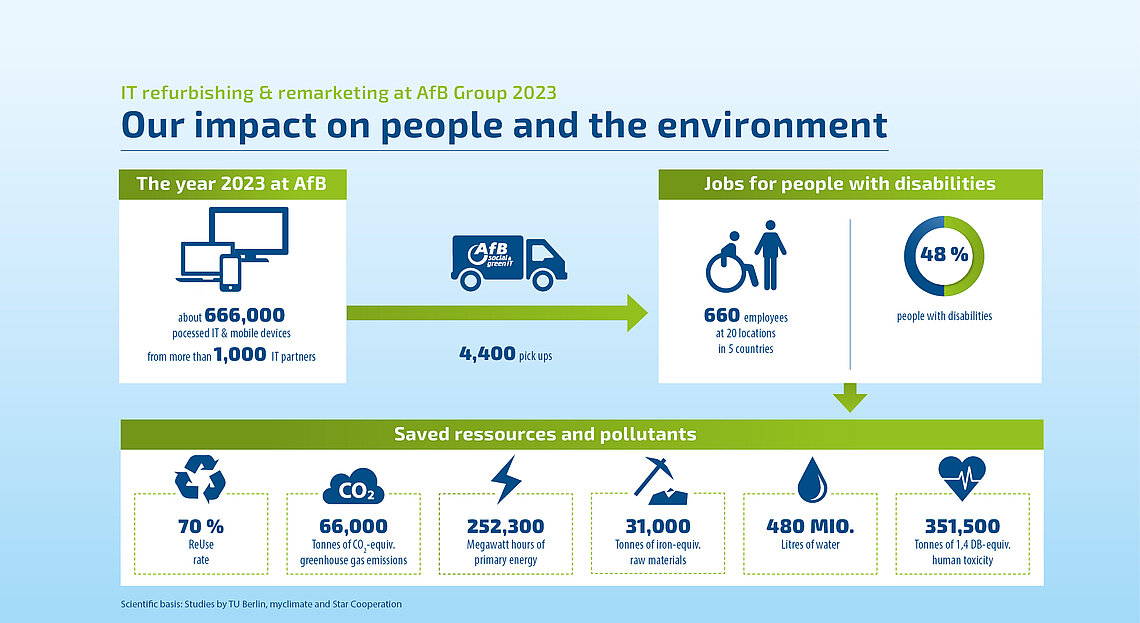| Christoph-Daniel Teusch | E-mail: cr@afb-group.eu |
| CR Manager |
Christoph-Daniel Teusch
CR Manager
E-mail: cr@afb-group.eu
IT remarketing has a sustainable impact. Through the remarketing of used hardware, AfB saves resources, reduces the emission of pollutants and creates jobs for people with disabilities. We record the positive effect on the environment and climate through the second use of used hardware compared to new production in detail every year on the basis of studies by TU Berlin, the climate protection organisation myclimate and the Star Cooperation.

In 2023, AfB employees processed 666,000 IT and mobile devices and were able to give 70 % of them a second life. The remaining devices were professionally recycled to recover raw materials. Compared to new production, our recycling process helps to save significant amounts of resources and emissions.
Read in detail what AfB 2023 has achieved in social and environmental terms. You can find out more about AfB's work and goals with the help of measured values, explanations of terms and an interview with our sustainability management team.
| Christoph-Daniel Teusch | E-mail: cr@afb-group.eu |
| CR Manager |
Christoph-Daniel Teusch
CR Manager
E-mail: cr@afb-group.eu